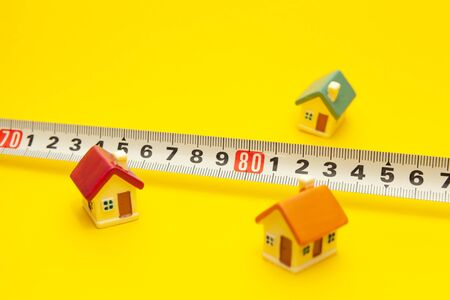1. Understanding Your Budget and Financial Readiness
Before diving into the home buying process, its essential to take a good look at your finances. As a first-time buyer, knowing what you can realistically afford will help you avoid disappointment and financial strain later on.
Assess Your Financial Situation
Start by reviewing your monthly income, expenses, and savings. Make sure you have a stable job or income source, and consider how much of your income youre comfortable putting toward a mortgage each month. A good rule of thumb is that your housing expenses shouldnt exceed 28% to 30% of your gross monthly income.
Example: Monthly Budget Breakdown
| Category | Monthly Amount |
|---|---|
| Gross Monthly Income | $5,000 |
| Maximum Housing Budget (30%) | $1,500 |
| Other Monthly Expenses (utilities, car, groceries) | $2,000 |
| Savings & Emergency Fund Contributions | $500 |
| Remaining Balance | $1,000 |
Check Your Credit Score
Your credit score plays a big role in the mortgage approval process and the interest rate youll qualify for. Most lenders prefer a score of at least 620 for conventional loans, though higher scores can get you better rates. You can check your credit report for free once a year at AnnualCreditReport.com.
Credit Score Ranges and What They Mean
| Credit Score Range | Rating | Impact on Mortgage |
|---|---|---|
| 750–850 | Excellent | Best interest rates and loan terms |
| 700–749 | Good | Qualifies for favorable rates |
| 650–699 | Fair | May qualify but with higher rates |
| 600–649 | Poor | Difficult to qualify; higher costs likely |
| Below 600 | Very Poor | Lenders may deny application or require large down payment |
Consider Additional Homeownership Costs
A mortgage isnt the only cost youll face. You’ll also need to budget for:
- Property Taxes: Varies by location; check local county tax rates.
- Homeowners Insurance: Required by lenders to protect the property.
- Maintenance & Repairs: Experts suggest setting aside 1% of your homes value annually for upkeep.
- HOA Fees: If you’re buying in a community with a homeowners association.
Total Monthly Housing Cost Estimate Example
| Description | Estimated Cost/Month |
|---|---|
| Mortgage Payment (Principal + Interest) | $1,200 |
| Property Taxes | $250 |
| Homeowners Insurance | $100 |
| Maintenance Reserve (est.) | $150 |
| Total Estimated Monthly Cost | $1,700 |
Taking time to understand your financial readiness will help set realistic expectations and make the rest of the home buying journey smoother and less stressful.
2. Getting Pre-Approved for a Mortgage
Before you start house hunting, it’s important to get pre-approved for a mortgage. This step helps you understand how much home you can afford and shows sellers that youre a serious buyer.
Why Pre-Approval Matters
Getting pre-approved means a lender has reviewed your financial information—like your income, credit score, and debts—and is willing to loan you a certain amount of money. This gives you a clear budget and strengthens your position when making an offer on a home.
Steps to Get Pre-Approved
- Connect with a Mortgage Lender: Reach out to banks, credit unions, or mortgage brokers. You can compare rates and services to find the best fit.
- Submit Financial Documents: These typically include proof of income (pay stubs, tax returns), credit history, and information about your debts and assets.
- Lender Reviews Your Info: The lender will evaluate your financial health and determine how much they’re willing to lend you.
- Receive Pre-Approval Letter: This letter outlines the loan amount you qualify for and shows sellers youre financially prepared.
What You’ll Need for Pre-Approval
| Document | Description |
|---|---|
| Proof of Income | Recent pay stubs, W-2s, or tax returns if self-employed |
| Credit Report | Your lender will pull this to check your credit score and history |
| Bank Statements | To show your savings and verify down payment funds |
| ID and Social Security Number | For identity verification purposes |
Tip:
A higher credit score usually means better interest rates. If your score needs improvement, consider paying off debts or correcting errors on your credit report before applying.
Quick Reminder:
A pre-approval isn’t a final loan commitment—it just gives you an idea of what you can afford. Once you find a home and make an offer, the lender will complete the full underwriting process before officially approving your mortgage.
![]()
3. Hiring a Real Estate Agent
One of the most important steps in buying your first home is finding the right real estate agent. A licensed and experienced local agent can make a big difference in your home buying journey. They know the local market, understand what youre looking for, and can guide you through each step—from browsing listings to closing the deal.
Why You Need a Real Estate Agent
Buying a home involves a lot of moving parts—negotiations, paperwork, inspections, and more. A good agent acts as your guide and advocate throughout the process. Here’s how they can help:
| What They Do | How It Helps You |
|---|---|
| Search for homes | Saves you time by showing homes that match your needs and budget |
| Negotiate offers | Helps you get the best price and terms |
| Handle paperwork | Makes sure all documents are completed correctly and on time |
| Connect with professionals | Refers you to trusted lenders, inspectors, and attorneys if needed |
How to Choose the Right Agent
Not all agents are the same. Look for someone who is not only licensed but also has experience working with first-time buyers. Here are some tips to help you choose:
- Ask for referrals: Friends, family, or coworkers may recommend someone they trust.
- Check online reviews: Look at sites like Zillow, Realtor.com, or Google Reviews.
- Interview a few agents: Ask about their experience, availability, and how they communicate.
- Make sure they understand your needs: Your agent should listen to your goals and preferences.
Questions to Ask Potential Agents
- How long have you been working in this area?
- Have you helped other first-time buyers before?
- What’s your approach to finding homes that fit my needs?
- How will we stay in touch during the process?
A strong real estate agent will not only help you find the right home but will also make the entire process less stressful. Take your time to find someone who is a good match for you—you’ll be glad you did.
4. House Hunting and Making an Offer
Now that you have your mortgage pre-approval and a clear idea of your budget and needs, it’s time to start house hunting. This is one of the most exciting steps in the home buying process, especially for first-time buyers. Here’s how to approach it smartly and effectively.
Tour Homes That Fit Your Criteria
Work closely with your real estate agent to find homes that match your wishlist and fall within your approved budget. Online listings are a great place to start, but seeing a property in person gives you a better sense of space, condition, and neighborhood feel.
Things to Consider During Tours:
| Aspect | What to Look For |
|---|---|
| Location | Commute time, school district, nearby amenities, safety |
| Condition | Age of roof, HVAC system, plumbing, electrical work |
| Layout & Size | Does the floor plan meet your lifestyle needs? |
| Neighborhood | Noisy or quiet? Well-kept or run-down? HOA rules? |
Evaluate Pros and Cons of Each Home
After each tour, take notes or photos to help remember key details. Compare each home based on your priorities—some compromises may be necessary, so be clear about what’s non-negotiable versus what’s nice to have.
Tip:
Create a simple checklist for each property to score features like kitchen size, backyard space, storage, parking, etc. This helps make comparisons easier when narrowing down your choices.
Making a Competitive Offer
Once you’ve found “the one,” it’s time to make an offer. Your agent will guide you through recent comparable sales (comps) in the area to determine a fair and competitive price. Be prepared for negotiations—sellers may counteroffer or ask for different terms.
Your Offer May Include:
- Purchase price: Based on market value and your budget
- Contingencies: Such as financing, home inspection, or appraisal contingencies
- Earnest money deposit: A good faith deposit showing youre serious (usually 1–3% of the purchase price)
- Closing timeline: When you expect to finalize the sale (typically 30–45 days)
Your agent will submit the offer on your behalf and handle all communication with the seller’s agent. If accepted, congratulations—you’re one step closer to owning your first home!
5. Home Inspection, Appraisal, and Closing the Deal
Now that your offer has been accepted, youre getting closer to owning your first home! But before popping the champagne, there are a few more important steps to make sure everything is in good shape and ready to go.
Schedule a Home Inspection
A home inspection is your chance to uncover any hidden issues with the property. A licensed inspector will check the homes structure, roof, plumbing, electrical systems, HVAC, and more. This usually happens within a week of your offer being accepted.
What Inspectors Typically Check
| Area | What’s Inspected |
|---|---|
| Roof | Leaks, damage, age |
| Plumbing | Pipes, water heater, leaks |
| Electrical | Wiring, outlets, breaker panel |
| Foundation | Cracks, settling issues |
| HVAC | Heating and cooling system functionality |
Negotiate Repairs or Concessions
If the inspection reveals problems, you can negotiate with the seller. You might ask them to fix certain items before closing or request a credit toward your closing costs so you can handle repairs after moving in. Your real estate agent will help guide this conversation.
The Appraisal Process
Your lender will order an appraisal to make sure the homes value matches the price youre paying. This protects both you and the bank from overpaying. If the appraisal comes back lower than expected, you may need to renegotiate or come up with additional funds.
Finalize Your Mortgage Paperwork
This step involves submitting final documents to your lender. They’ll review your income, assets, and debts one last time before issuing whats called a “clear to close.” Make sure not to make big purchases or open new credit lines during this period—it could affect your loan approval!
Closing Day: Review & Sign All Documents
This is it—the big day! Youll meet at the title company or attorney’s office to sign paperwork including the mortgage agreement and property deed. Be prepared to:
- Bring valid ID(s)
- Pay closing costs (usually via wire transfer or cashier’s check)
- Review all documents carefully before signing
- Receive your keys once everything is finalized!
Once youve signed all the required paperwork and funds have been transferred, congratulations—you’re officially a homeowner!


